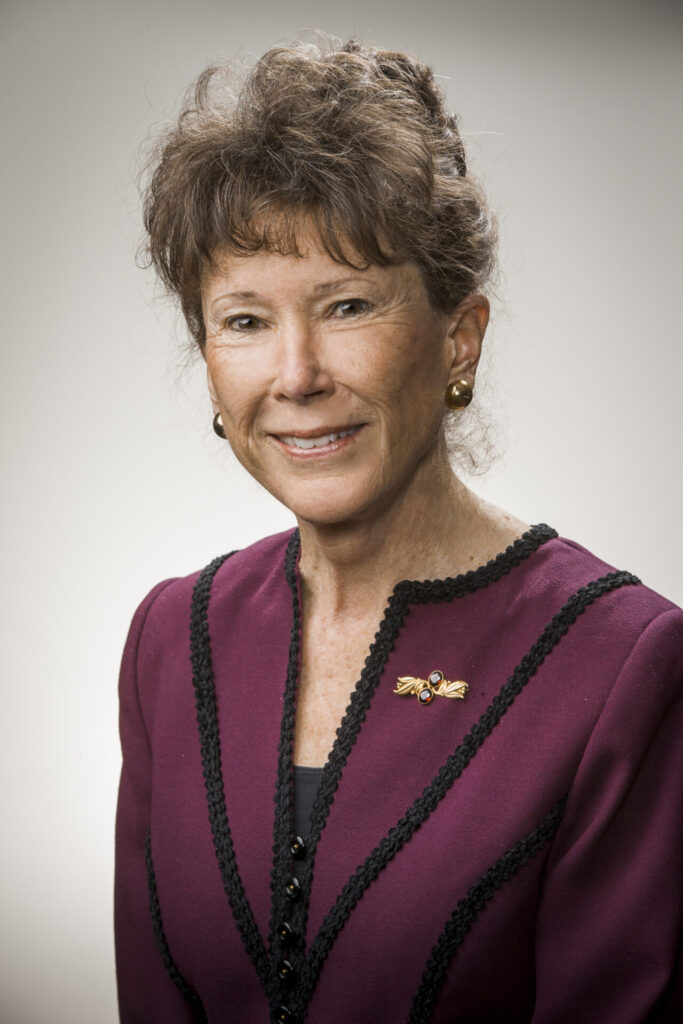ZPG Society Member: Dorothy Bradley
Published: December 11, 2023
The ZPG Society is our recognition group for members who have made a gift in their will or trust, established a charitable gift annuity, or designated Population Connection as a beneficiary of their retirement fund or other financial account. Membership Relations Coordinator Stephanie Wolfe spoke with ZPG Society member Dorothy Bradley about her commitment to zero population growth. Lee S. Polansky, Senior Director of Executive Initiatives and Special Projects, edited the interview for publication. We are grateful to Dorothy and all our generous legacy donors!
 Dorothy Bradley has been a role model for Montanans, and beyond, for most of her adult life. After growing up in Bozeman, she received a BA from Colorado College and a JD from American University. At the young age of 23, she campaigned as a Democrat for the Montana House of Representatives. She won the seat and served eight terms, from 1971–1979 and from 1985–1993. She was the lone woman serving in Montana’s House of Representatives when she began her first term in 1971.
Dorothy Bradley has been a role model for Montanans, and beyond, for most of her adult life. After growing up in Bozeman, she received a BA from Colorado College and a JD from American University. At the young age of 23, she campaigned as a Democrat for the Montana House of Representatives. She won the seat and served eight terms, from 1971–1979 and from 1985–1993. She was the lone woman serving in Montana’s House of Representatives when she began her first term in 1971.
In 1992, Dorothy ran a competitive (and memorable) campaign for Governor, riding her horse across Montana. She narrowly lost and then briefly taught in a small school in the Northern Cheyenne community of Ashland; worked in administrative positions dealing with water and criminal justice; and directed the University System Water Center at Montana State University for seven years.
Dorothy tells us how she first learned about population growth and its harmful effects:
When I was about 20, an article and a book landed in my lap that abruptly set me on a new life path. First, I read a 1959 article in Science magazine by my father, who was a scientist and who had calculated the global use of water and the world’s population increase. He concluded that water scarcity would be the first and worst of this planet’s natural resource shortages.
Paul and Anne Ehrlich’s 1968 book The Population Bomb cemented her concerns. Dorothy was the organizer of Montana’s very first Earth Day on April 22, 1970, and she has yet to stop her quest to save the environment. She recently edited a special issue of Public Lands & Resources Law Review, the University of Montana Law School journal. The issue commemorates the 1960s and ’70s, when Montanans, as one writer puts it, “came together to pass some of the strongest environmental and human rights laws in the nation.” Dorothy concurs, saying that the time was “an astonishing decade in Montana law-making” known as “the Glory Days, Golden Years, and the Earth Decade.” She remembers that era with pride, describing it as “the most visionary and policy-productive years of our lives. And we believed we would keep building upward.” She calls herself a warrior for the environment and says she was “on fire in those days.”
 We’re awed by Dorothy’s life work and grateful for her generous support, as well as for including Population Connection in her will. In this way, she’s continuing her “devotion to public service and desire to leave the world a better place.”
We’re awed by Dorothy’s life work and grateful for her generous support, as well as for including Population Connection in her will. In this way, she’s continuing her “devotion to public service and desire to leave the world a better place.”
Dorothy’s commitment to service inspires us here at Population Connection. We are grateful for her investment in our work over the long term by including a gift to Population Connection in her will. We’re proud to work together to foster the world of opportunity Dorothy envisions. If you’re interested in learning how you can include Population Connection in your estate plans, please contact us at legacy@popconnect.org. You may also go online to create your will for free, at freewill.com/populationconnection.
